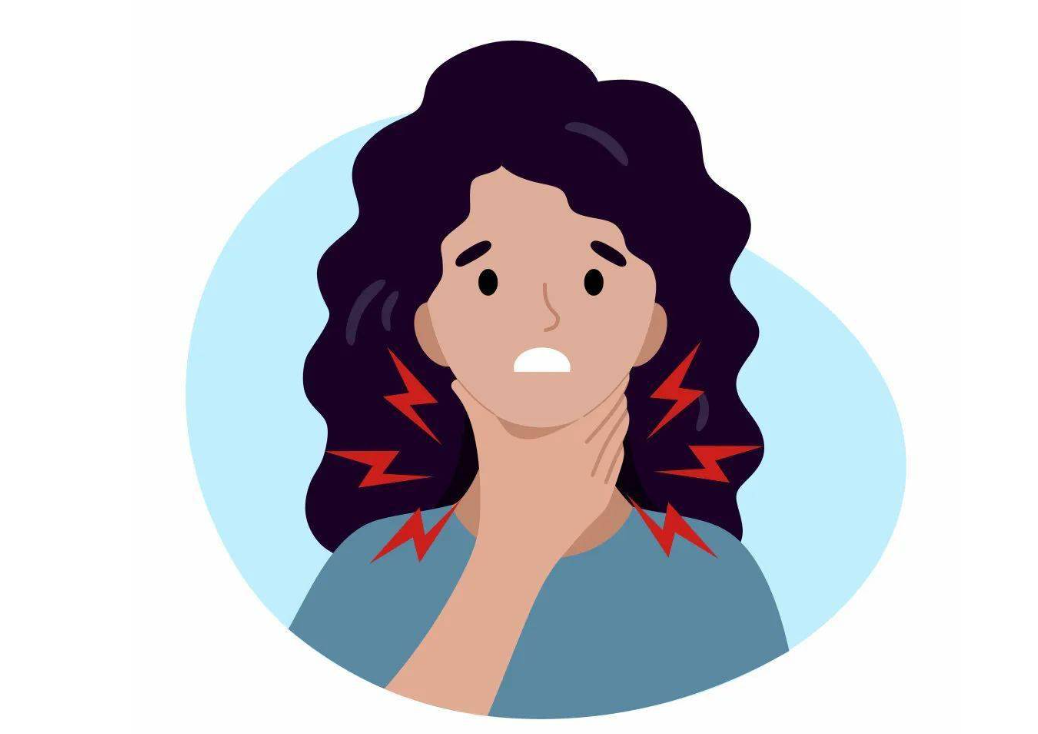
Thyroid diseases are on the rise among young people, and because of the long treatment cycle of such diseases and their impact on quality of life, many young people feel anxious and worry about "being found" one day.
Having a thyroid problem? No need to panic too much
The thyroid is an important endocrine gland in the body, located in the front of the neck, near the larynx. It is butterfly-shaped and consists of two "leaves" that are connected by a structure called the thyroid isthmus.
The main function of the thyroid gland is to produce, store and release thyroid hormones, which play an important role in human metabolism, growth and development, and nervous system function.
Thyroid nodules, hyperthyroidism (hyperthyroidism) and hypothyroidism (hypothyroidism) are more common in younger people. The main manifestations of hyperthyroidism are excessive sweating, dry heat, palpitations, etc., while hypothyroidism is manifested as weakness, edema, and low blood pressure.
In addition to traditional thyroid diseases, Hashimoto's thyroiditis is also gradually receiving attention.
It is an autoimmune disease that may cause abnormalities in thyroid function, such as hypothyroidism or hyperthyroidism.
In the past, when talking about thyroid dysfunction, people would first think of "big neck disease" caused by iodine deficiency. Today, young people use electronic devices for a long time to become the norm,especially in the long-term exposure to electromagnetic radiation environment, electromagnetic radiation of electronic devices may have adverse effects on thyroid function.
The change of people's lifestyle is also one of the important reasons for the trend of thyroid disease.
Nowadays, the fast pace of life, irregular work and rest times, unbalanced eating habits and lack of enough physical exercise may increase the risk of thyroid disease.
For thyroid nodules, benign nodules are generally reviewed once a year, and if there is a tendency for malignant changes, they need to be reviewed more frequently.
For women with abnormal thyroid function and who are preparing for pregnancy, timely examination and treatment should be carried out to avoid affecting the development of the fetal nervous system.
Secondly, in the process of dynamic observation, the nodules can be reduced or even completely eliminated through traditional Chinese medicine conditioning, as well as local and neck acupoint application treatment.
Chinese medicine has unique advantages in the treatment of thyroid diseases, especially when dealing with problems such as hypothyroidism and hyperthyroidism, the holistic treatment approach and individual treatment strategy adopted by Chinese medicine can effectively improve symptoms.
For hyperthyroidism and other diseases, faster return to normal indicators, reduce the recurrence rate of the disease.
Patients with hypothyroidism are usually accompanied by weakness of spleen and kidney. Traditional Chinese medicine treatment through invigorating spleen and qi, strengthening and protecting kidney Yang and other methods to regulate.
So this is also a kind of "emotional disease"In modern society, young people are faced with great pressure of study, work and life, and often feel anxious and nervous. "Take a step back from breast hyperplasia and endure ovarian cysts for a while", many female friends often use this sentence to remind themselves that bad emotions will have a negative impact on the body. In fact, people with large mood swings are also easy to be targeted by thyroid disease.
For thyroid problems, traditional Chinese medicine generally focuses on regulating life and rest and using traditional Chinese medicine to ease the liver and regulate qi, promoting blood circulation and removing blood stasis, resolving phlegm and clearing up, strengthening the spleen and supplementing qi.
Chronic anxiety, lack of rest, and mood swings can lead to liver qi depression. After liver qi stagnation, there may be problems in the areas through which the liver passes, including the eyes, thyroid, breast, and reproductive system.
The prevention and detection of thyroid disease is the key.
The early screening stage is difficult to tell by the naked eye, and you can have an annual thyroid function test, including blood tests and ultrasound. Emotional regulation and a healthy lifestyle are important for the prevention and treatment of thyroid disease, including a balanced diet, adequate exercise, adequate sleep, and a positive attitude.

